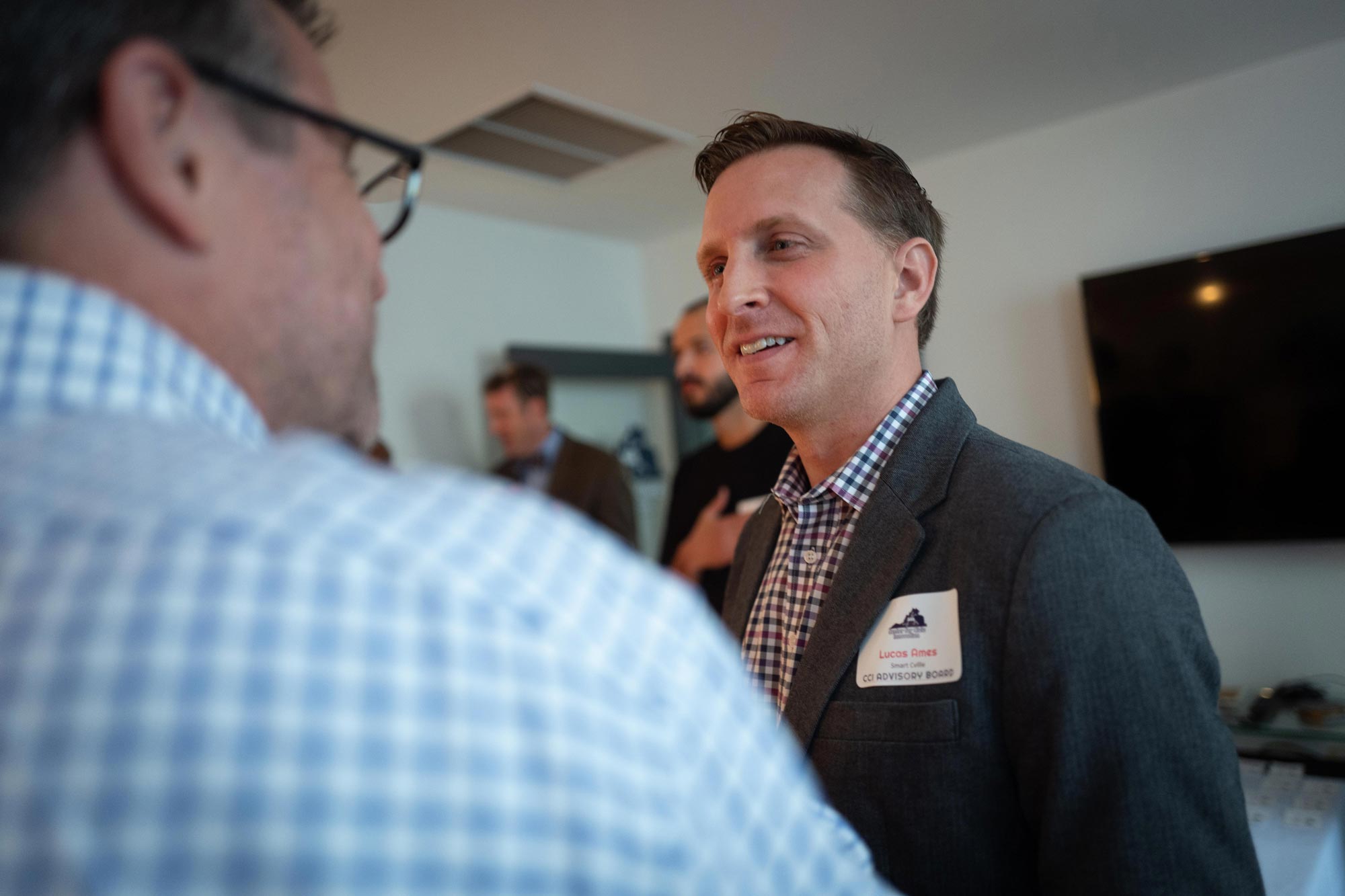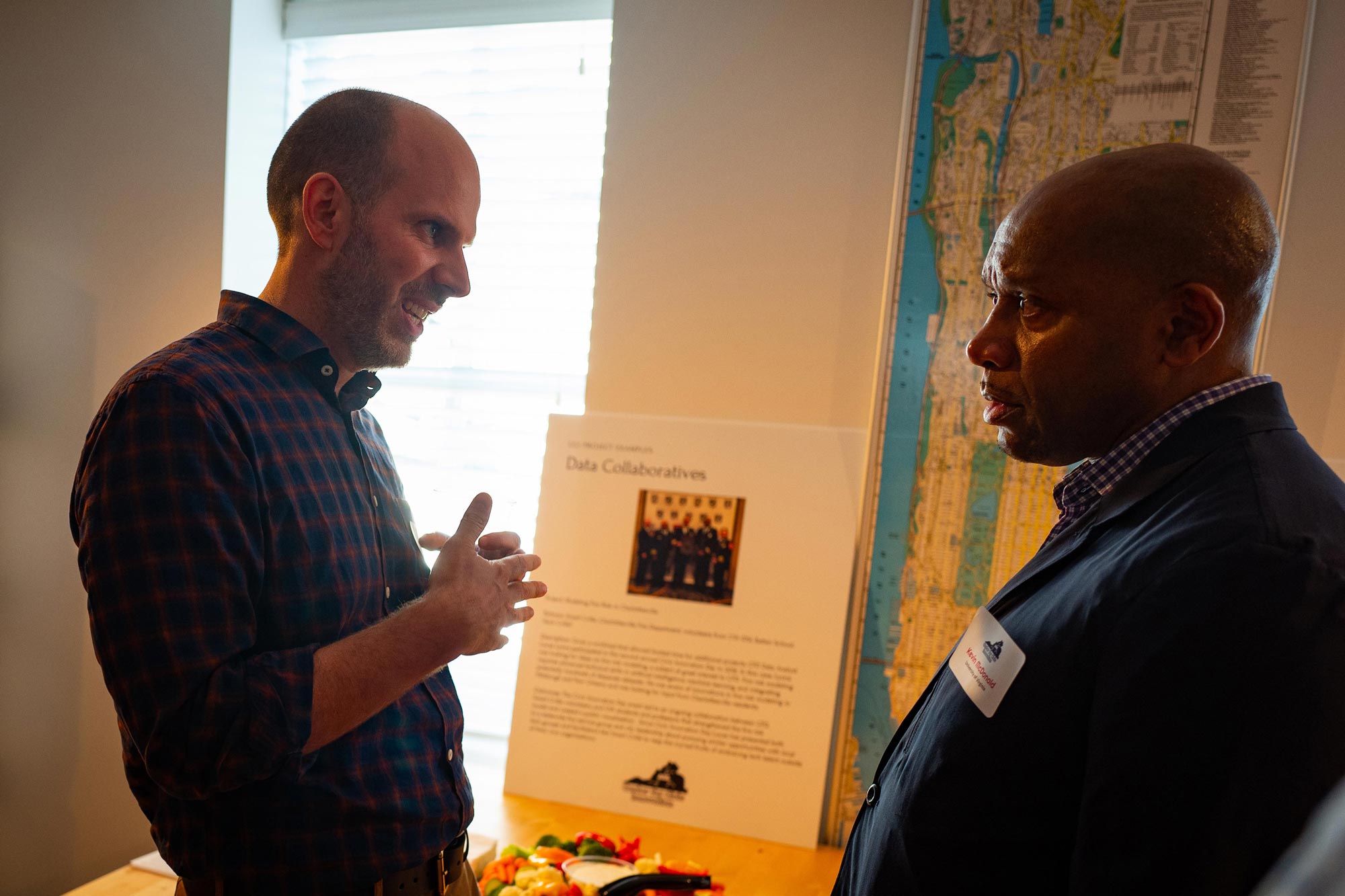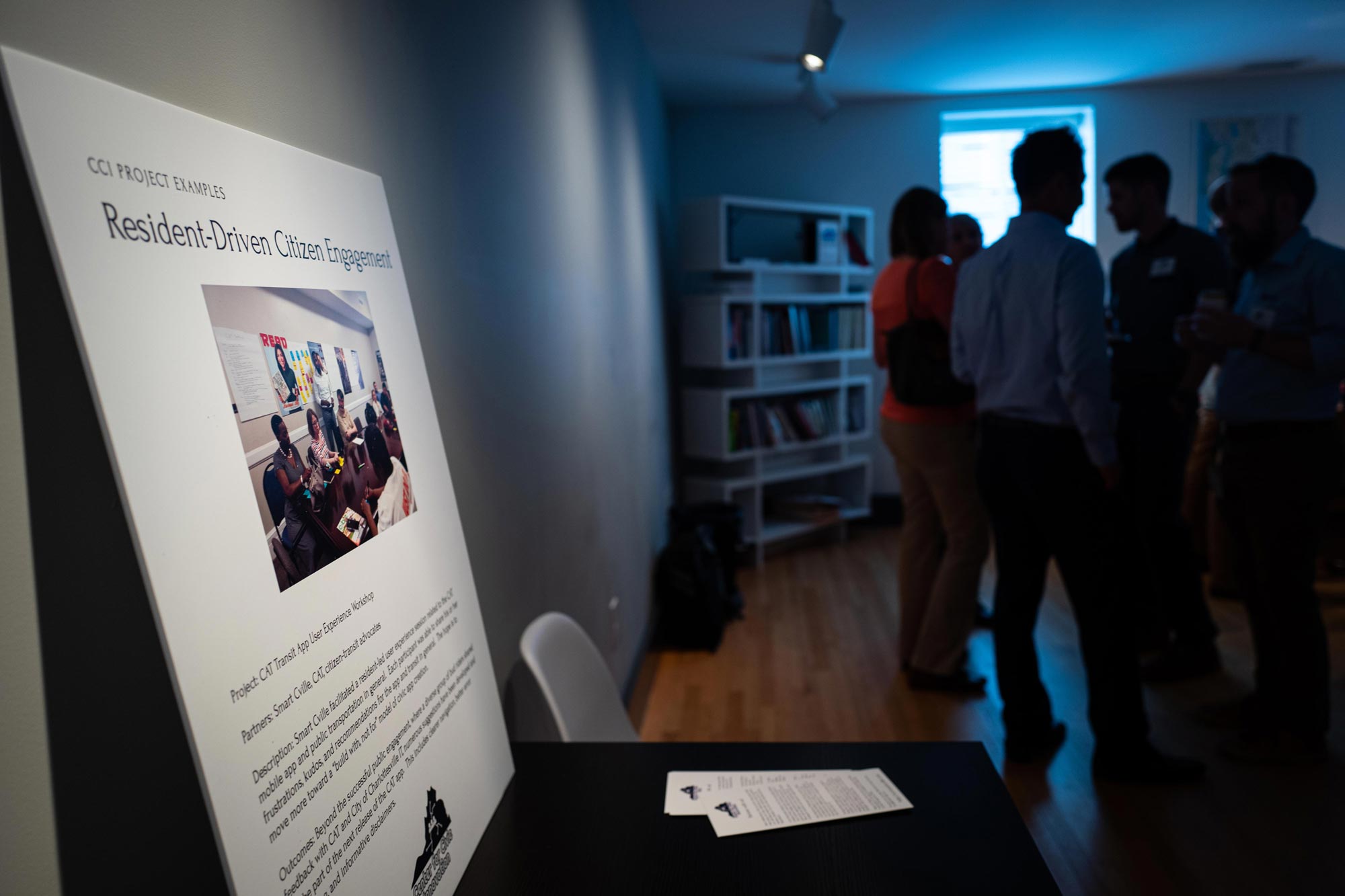Communities face countless issues every day: public transportation, fair housing, clean water. Often citizens feel powerless to address those concerns alone, even if they have good ideas that could help. Maybe they’re not confident they have the background or technical abilities to make solutions happen, or perhaps there hasn’t been a good place to bring up the ideas in the first place.
The Charlottesville region has a new way for community members to work together on common problems. The Center for Civic Innovation launched Wednesday, in partnership with faculty from the University of Virginia schools of Engineering, Architecture, Data Science and Continuing and Professional Studies, along with local nonprofit Smart Cville, which sensed a need for a community-centered program and a collaboration space in downtown Charlottesville.
The center, located on 4th Street off of the Downtown Mall, is focused on convening citizens, UVA faculty and students and government officials to address tough community challenges using data and technology.
UVA Engineering’s Link Lab for cyber-physical systems, a multidisciplinary laboratory focused on education, research and development in the areas of autonomous systems, smart health and smart cities, has a leading role in the Center for Civic Innovation and its community focus.
“I feel very strongly that it’s something the community owns and leads, and that UVA is a very engaged and active partner,” said Jonathan Goodall, professor in the Department of Engineering Systems and Environment and associate director of the Link Lab.
Goodall is a member of the center’s advisory board. His UVA research focuses on smart cities. “If we don’t have a significant partnership with our local community, it’s kind of hard to say we’re doing smart cities work,” he said.
The center is operated and financially supported by Smart Cville, which promotes the use of technology to make cities better places to live.
The eight-member advisory board, including Goodall and other UVA faculty members, joins board members from city and county offices as well as Lucas Ames, the founder of Smart Cville.
“Our ultimate goal is to be a model for how siloed groups can come together and work toward solutions to common problems,” Ames said. “We believe ideas and solutions can and should bubble up from the community.”

Lucas Ames is the founder of Smart Cville, which operates the Center for Civic Innovation. (Photo by Christopher Tyree, UVA Engineering)
Mona El Khafif, associate professor in the School of Architecture and board member, said, “Innovation, and specifically technology-driven innovation, is not a top-down process, but everyone has the right, and quite honestly the responsibility, to participate in this.”
She has two research projects that will involve the center; one multidisciplinary project focuses on access of information and resources in rural and small to midsize towns across Virginia. The second project will investigate how data-responsive urban architectures and infrastructures can ignite community engagement.
Community ownership of this new center gives it credibility and inspires trust, Ames said. “It also creates a permanent position for UVA in the community,” which aligns with the new UVA Strategic Plan for becoming a “great and good” university.
Goodall’s previous work on stormwater and transportation infrastructure with the City of Norfolk, as part of smart cities research for the Link Lab, gives him a unique perspective on how to engage communities. He suggested that one use of the new center would be to bring in his fourth-year students when they work on their final “capstone” projects before they graduate from UVA Engineering. The students in this year’s capstone are working with city officials in the North Downtown section of Charlottesville to address a complicated localized flooding problem affecting residents in the neighborhood.
“As part of their educational experience, students will gain a better understanding of what it means to engage with stakeholders and understand the complexities of how cities build infrastructure, how infrastructure is financed, how it is operated, and how it is maintained,” Goodall said. “Real-world engagement like this is a critical part of any civil engineering program.”
Angela Orebaugh, an advisory board member and assistant professor in the School of Continuing and Professional Studies, said her students are interested in using the center to further their dialogue with the community about sustainability in the region.
“Students will have the opportunity to participate in gatherings and events at the center, but also to interact with residents, local leaders and technologists to identify areas in need of creative solutions,” she said.
Goodall believes bringing community members into the relationship with the center is critical, but also one of the biggest challenges.
“The center is about co-generation of ideas. We need to have all voices at the table to do that – the academic voice, the city and county voice, and the community’s voice. Ideas get generated through that conversation. But how to actually create these conversations is part of the challenge we are going to be facing.”

Jon Goodall (left), assistant director of Link Lab, spoke with Kevin MacDonald, UVA’s vice president for diversity, equity and inclusion, at the launch of the Center for Civic Innovation. (Photo by Christopher Tyree, UVA Engineering)
One possibility is to start with advocacy groups, Ames said. “A key strategy is to partner directly with community-based organizations where the ‘community’ already is active. We have a clear lens. We aren’t looking to be a public engagement center for everyone. We are centered on using technology and data to help drive solutions.”
Center leaders will accomplish that by helping train community members how to use technology to generate data that can be used to frame discussions that lead to solutions.
“Technology and data are critical enablers of community engagement. With access to data, the community can make the system better,” Ames said.
“The center will create interfaces between community organizations and projects, governmental staff and academic researchers,” said Luis Murillo, another of the center’s advisory board members and an associate researcher at UVA’s new School of Data Science. “My research work is dedicated to the creation, examination and support of these interfaces for the benefit of our city and our students. This is also very much in line with the goals of the School of Data Science, ‘a school without walls,’ that contributes data analytics expertise and infrastructure to address complex social and environmental problems.”
As the region continues to grow and evolve, having a place that can serve as a center for civic engagement around using technology as an enabler for solutions is a novel approach to complex problems. “The center can bring together diverse groups of people, technology and data to generate ideas and turn them into solutions,” Orebaugh said. “Great innovations are built on diversity, creativity and motivation.”
Media Contact
Article Information
September 26, 2019
/content/uva-partners-community-launch-center-civic-innovation

